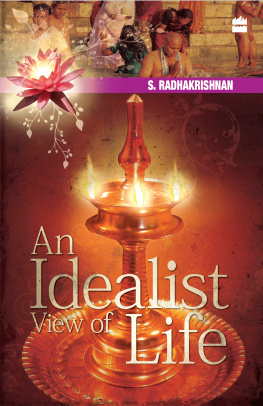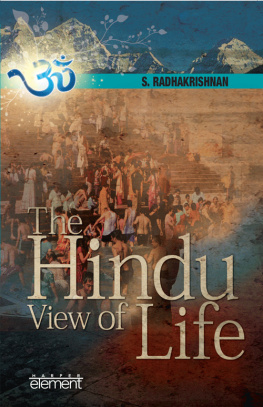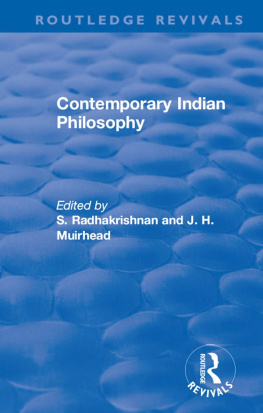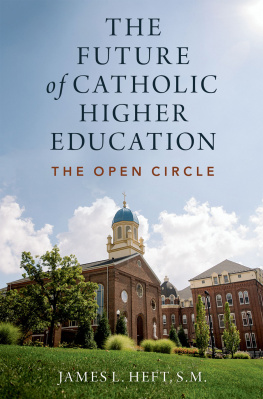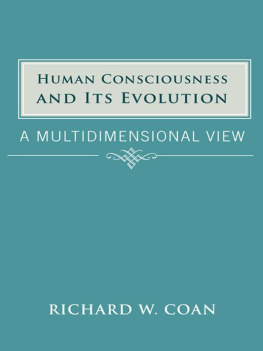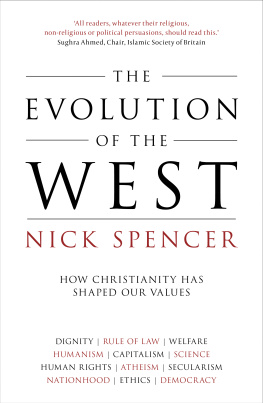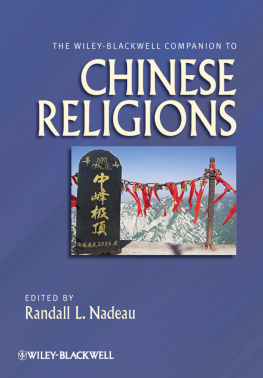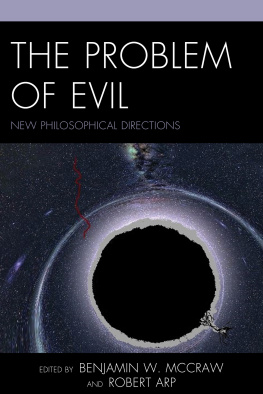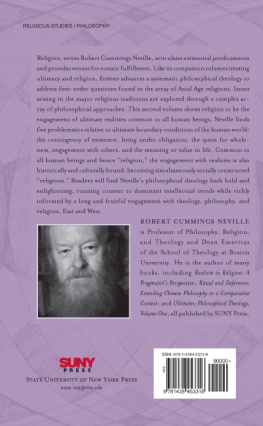NOTE
This book is largely based on lectures
delivered by the author in 1929 and
1930 at the University of Manchester
and University College, London, under
the auspices of the Hibbert Trustees.
Professor S. Radhakrishnan (18881975) was a prominent philosopher, author and educationalist. He was equally at home in the European and Asiatic traditions of thought, and devoted an immense amount of energy to interpreting Indian religion, culture and philosophy for the rest of the world. He was a visiting professor at many foreign universities, and served as Indias Ambassador Extraordinary to the USSR from 1949 to 1952. He was elected to the office of vice-president of India in 1957. He became the President of India in 1962 and held this rank until 1967, when he retired from public life.
He wrote a number of books for readers the world over. Some of his outstanding works are The Hindu View of Life,Indian Philosophy, Vols I and II, and a seminal translation of and commentary on the Bhagavadgita.
Also by S. Radhakrishnan
THE BRAHMA SUTRA
THE PRINCIPAL UPANISADS
INDIAN PHILOSOPHY
THE HINDU VIEW OF LIFE
THE BHAGAVADGITA
THE DHAMMAPADA
CHAPTER I

1. WHAT IS IDEALISM?
Idealism is an ambiguous word and has been used to signify a variety of views. An idea is taken as a particular mental image peculiar to each individual and attempts are made in the Buddhist Vijnavda (mentalism) and English empiricism to reduce all knowledge to ideas in this sense. Whatever is real in the universe is such stuff as ideas are made of. Ideas or images are regarded as self-contained existences and not as avenues of the apprehension of a world which is at once more ideal and more real than themselves. The term idea has also been used to signify the universal notion, which is not an existent here and now, but a quality of the existent which is shareable by other existents and knowable by other minds. While Berkeleys first statement is more of a mentalism holding that existence consists either in perceiving or being perceived, his modified view with its emphasis on notions brings it under the second type. For Kant, knowledge is an extension of a sense-manifold by means of the categories of thought. While his main intention is to regard the categories as the means by which the world that extends beyond the given datum reveals itself to the finite mind, there is, however, the implication that the categories are only subjective and ideal while reality is an uncategorized, unidealized world with which we are face to face in immediate perception. These different tendencies are developed in later thought. While Hegel and his followers look upon reality as built up out of relations of thought, modern realists are more insistent upon the sense-manifold. Though reality for the Hegelian idealists is a dialect of ideas, no modern philosopher believes that the world of experience is constituted by mere ideas. For Croce, however, reality is mental activity. Even the conceptions of a something which is external, mechanical and natural are data furnished to mind by itself. This idea or value is the operative creative force. An idealist view finds that the universe has meaning, has value. Ideal values are the dynamic forces, the driving power of the universe. The world is intelligible only as a system of ends. Such a view has little to do with the problem whether a thing is only a particular image or a general relation. The question of the independence of the knower and the known is hardly relevant to it. Nor is it committed to the doctrine that the world is made of mind, an infinite mind or a society of minds. Idealism in the sense indicated concerns the ultimate nature of reality, whatever may be its relation to the knowing mind. It is an answer to the problem of the idea, the meaning or the purpose of it all. It has nothing in common with the view that makes reality an irrational blind striving or an irremediably miserable blunder. It finds life significant and purposeful. It endows man with a destiny that is not limited to the sensible world. When Touchstone asks Corin in As You Like It, Hast any philosophy in thee, shepherd? Shakespeare means by philosophy not a system of abstract thought or a technical discipline of the schools but an attitude of mind which can best be described as idealistic. Have you that spiritual dimension to your being, that mood of reflective inquiry and self-contemplation, that anxiety of mind to know the things spiritual in which is the true dwelling-place of man? Or do you belong to the race of unreflective people who are satisfied with business or politics or sport, whose life is dull prose without any ideal meaning? Philosophy is understanding, contemplation, insight, and a philosopher can find no rest until he gains a view or vision of the world of things and persons which will enable him to interpret the manifold experiences as expressive, in some sort, of a purpose.
An idealist view of life is not expressed in any one pattern. It is many-coloured and its forms are varied; yet underneath all the variations and oppositions there are certain common fundamental assumptions that show them all to be products of the same spirit. It has had a long and continuous history both in the East and in the West. The fountainheads of the Vedas, including the Upaniads, in the East and Socrates and Plato in the West, set forth this creed in broad and flexible terms. The realistic systems of Hindu thought, the Nyya and the Vaiesika, the Skhya and the Yoga, and the Mimms are not in serious disagreement with the fundamental intention of the idealist tradition of the Upaniads, viz. the inseparability of the highest value from the truly real. The absolute is reality, consciousness and freedomsat, cit, and nanda. In the West, from Socrates and Plato to Bradley and Alexander, the idealist outlook of an ultimate connection of value and reality is maintained. For Plato, the meaning of the universe is the realization of Good. The universe exists for that purpose.
In a sense, as Hegel said, all philosophy is idealistic. In contrasting appearance and reality, fact and truth, existence and essence, it is led to admit an ideal world beyond the phenomenal. Even absolute materialism is idealism, though of a crude kind, for the matter to which all existence is reduced is not a concrete actuality but an abstract idea. Modern physics reduces the world of immediate experience to one of shadows and symbols. Ions, electrons, ids are not observable phenomena and yet are posited as real since they fulfil the requirements of thinking. However anxious we may be for a return to the concrete, we find it difficult to reduce the real to the concrete. Ideas are always with us since they are an essential part of the real, and if we interpret them as ideals or values, an idealist view of the universe results. If we are not carried away by the noise of the controversy among the philosophical sects, but watch the deeper currents which are shaping them, we seem to find a strong tendency to insist on the insights of idealism, though, of course, the language and the style are different. Idealism today has to reckon with our problems and help us to face them. The stage seems to be set for a fresh statement.
Such a restatement can have little meaning for those who have not sounded the depths of the difficulties and discrepancies which a changing world is forcing on us. Though they are all too obvious, it is sometimes necessary to insist on the obvious. To know what the problem is, is quite as important as to know the answer to it. In a sense philosophy helps us to solve the problem by making us conscious of it. What are the main factors operative today in our life and thought? It is to a brief consideration of these that I wish to devote this first chapter.
Next page
